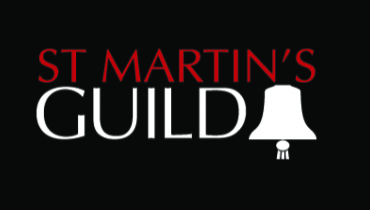When the raison dêtre ends what next?
Ringing is, by its nature, a practical activity and hence the lockdown has hit the very core of our hobby. To some, it might therefore have appeared that the purpose – the raison d'être even – of ringing associations and guilds had temporarily ended. The view of officers in the St Martin’s Guild however was that it was now, more than ever, that we needed to bring people together.
One action Clare McArdle, Guild Master and a member of the ART Management Committee, quickly took was to offer our support as a guild to coordinate phone calls or shopping for those self isolating. Whilst this isn’t a bell ringing activity, it was an important way of ensuring that the 250+ ringers we know were cared for and had someone to turn to if they needed it. We also discussed whether we may be able to begin using an online platform to engage members with theory.
We decided on an ambitious plan, where we would host two training sessions a week; Wednesday evenings would be a Guild training event whereas Saturday mornings would remain a Birmingham School of Ringing teaching session. We also decided that we wouldn’t restrict inclusion to either session, so non members could attend Wednesdays and those not involved in the BSoR could attend Saturdays. To help differentiate, we roughly sketched out a plan that Saturdays would focus primarily on the school teaching programme Learning the Ropes Levels 1 to 5 – whereas Wednesdays would look to host training at a higher level.
We had no idea whether this would be of interest to people, whether we would find people to present or indeed whether any of us could work the technology. But we endeavoured to give it our best shot. I’ll also confess to feeling very nervous at whether we’d find enough content to fill two sessions a week, especially when Clare (famous for her tenacity and efficiency) emailed a full seven week programme for Saturday sessions with presenters within a few days of our planning meeting!
To give members – and us – a chance to orientate ourselves around Zoom, we first hosted a quiz night to test the waters. With some trepidation and nerves, the evening was a success. Nearly 30 participants took part and it was particularly pleasing to see members from across the guild. We worked especially hard at ensuring participants were supported in accessing Zoom, which is important at ensuring inclusivity, and the quiz allowed us to ask people to submit what theory sessions they might like to focus on.
Following this, we began our twice weekly sessions. A range of speakers planned and led sessions on several different topics including:
- How our minds and memory works
- Ringing connections (focusing on variations of a range of methods)
- How can technology support our ringing?
- What is place notation?
- Coursing – what is it and how do you use it?
So far, all of our courses have been led by guild members. We are lucky to have a good field of experienced and willing presenters, though we will probably be looking to invite external speakers soon. Attendance has been pleasing and solid. We began with 24 members and this has steadily hit to just short of 40 so far.
Online sessions mean we can break geographic barriers. I’ve had emails thanking us for the regular contact these training sessions provide. Finally, we have worked hard to ensure our website is updated so anyone can access our training resources. You’d be welcome to explore them too, at http:// www.stmartinsguild.org/teaching/ trainingandresources/.
Finally, we have been intentional around moving guild events online as far as we can. Our guild business meeting will take place online. Our annual bake off contest has likewise gone online and whilst we cannot conduct a tasting competition, the online element has simply changed the focus of those participating and we have raised over £1,000 for a local charity.
Our next event is a walking tour in early July. If government guidelines change to mean it is safe for us to walk, we will do so. If not, we will re invent some social event online.
What has gone well?
- The range of presenters has meant people hear different approaches in different ways from different people.Easily overcomes geographical barriers and can include a large number of participants.
- Can focus on things you wouldn’t normally have time to focus on.You can reinvigorate events if you let your imagination flow!
- Online events can bring people together and provide an important focal point for ringers.
- Online platforms have the potential to bring experienced and less experienced ringers together from across the guild.
- This social interaction is important for many ringers.
- Keeps ringing a focus for people, keeps enthusiasm high for when ringing does return.
- Online sessions mean you can meet for relatively short periods of time, without the difficulty of travelling.
What we have learnt?
- Technology does require a bit of practice.
- The mute button is essential!
- Send the codes and passwords early.
- Supporting people onto your online platform is important. Some people feel extremely uncomfortable logging on. Offering support (both technical and emotional) is important.
- There is a lot going on for the presenter. Having a second host and a checklist helps.
- We've struggled to make sessions interactive or properly test participants understanding.
- There are natural limits on how much use theory will be without practice, but archiving the resources carefully should mean they can be referred to when ringing does return.
